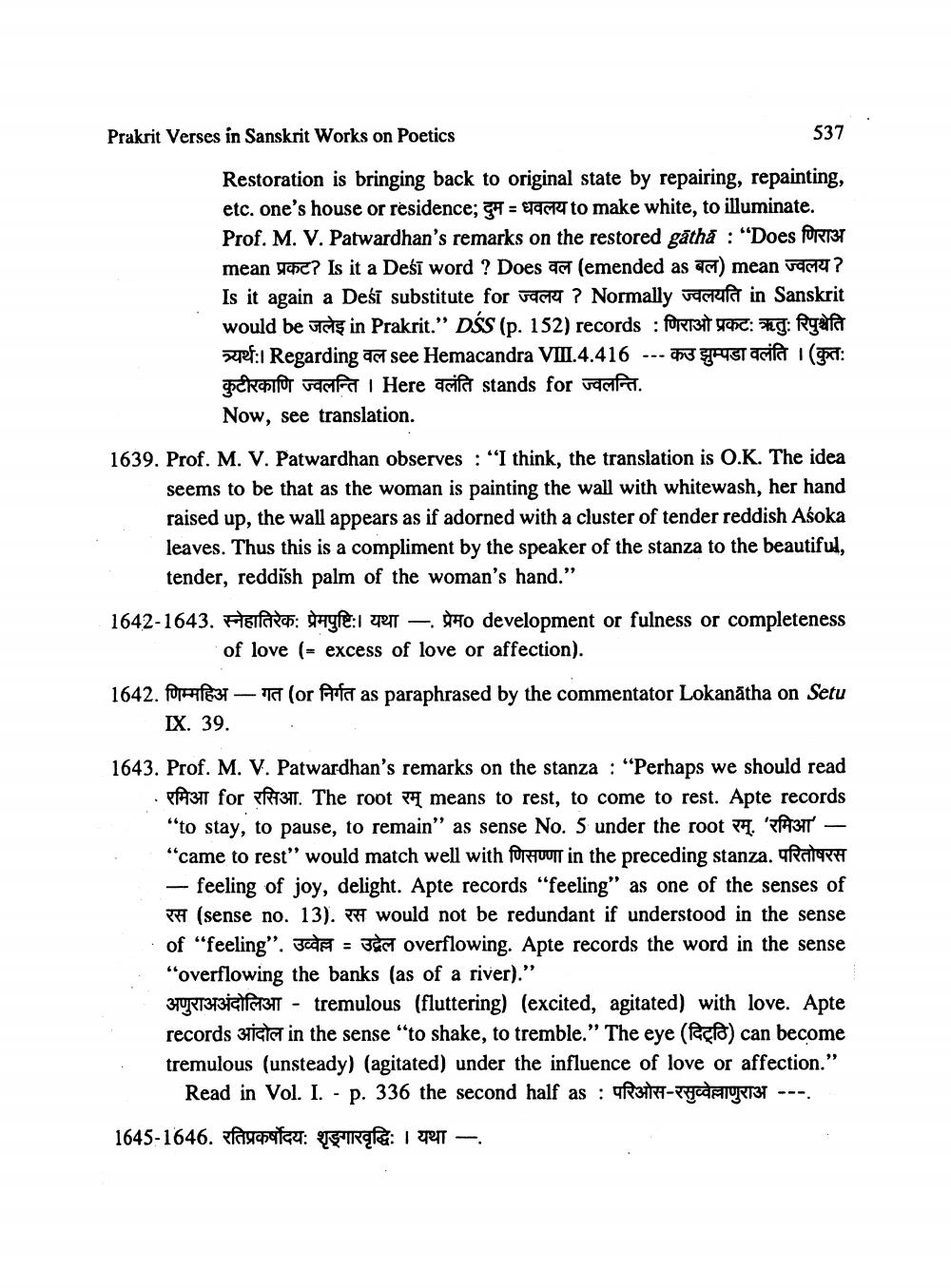________________
Prakrit Verses in Sanskrit Works on Poetics
537
Restoration is bringing back to original state by repairing, repainting, etc. one's house or residence; 7 = East to make white, to illuminate. Prof. M. V. Patwardhan's remarks on the restored gātha : "Does forert mean प्रकट? Is it a Desi word ? Does वल (emended as बल) mean ज्वलय? Is it again a Deść substitute for acte ? Normally vastufa in Sanskrit would be victs in Prakrit." DSS (p. 152) records : forr31 960: #g: Ryafa upf:1 Regarding act see Hemacandra VIII.4.416 --- Austacia (ga:
critor voor Here acila stands for varit Now, see translation.
1639. Prof. M. V. Patwardhan observes : "I think, the translation is O.K. The idea
seems to be that as the woman is painting the wall with whitewash, her hand raised up, the wall appears as if adorned with a cluster of tender reddish Aśoka leaves. Thus this is a compliment by the speaker of the stanza to the beautiful, tender, reddish palm of the woman's hand."
1642-1643. olaca: dife:1 UT — to development or fulness or completeness
of love (= excess of love or affection). 1642. णिम्महिअ - गत (or निर्गत as paraphrased by the commentator Lokanatha on Setu
IX. 39.
1643. Prof. M. V. Patwardhan's remarks on the stanza : "Perhaps we should read
fA31T for 13. The root means to rest, to come to rest. Apte records "to stay, to pause, to remain" as sense No. 5 under the root 24. 'PA31T' — "came to rest" would match well with for huur in the preceding stanza. Ratarsi
— feeling of joy, delight. Apte records "feeling” as one of the senses of 24 (sense no. 13). P would not be redundant if understood in the sense of “feeling". 3A = 3 overflowing. Apte records the word in the sense "overflowing the banks (as of a river).” 3TURT3T3IGIPT3T - tremulous (fluttering) (excited, agitated) with love. Apte records 3tists in the sense "to shake, to tremble." The eye (Reçfa) can become tremulous (unsteady) (agitated) under the influence of love or affection."
Read in Vol. I. - p. 336 the second half as : RITH-REJCSAVET3T --- 1645-1646. etayapatan: GʻIRqie: I PRIT —




